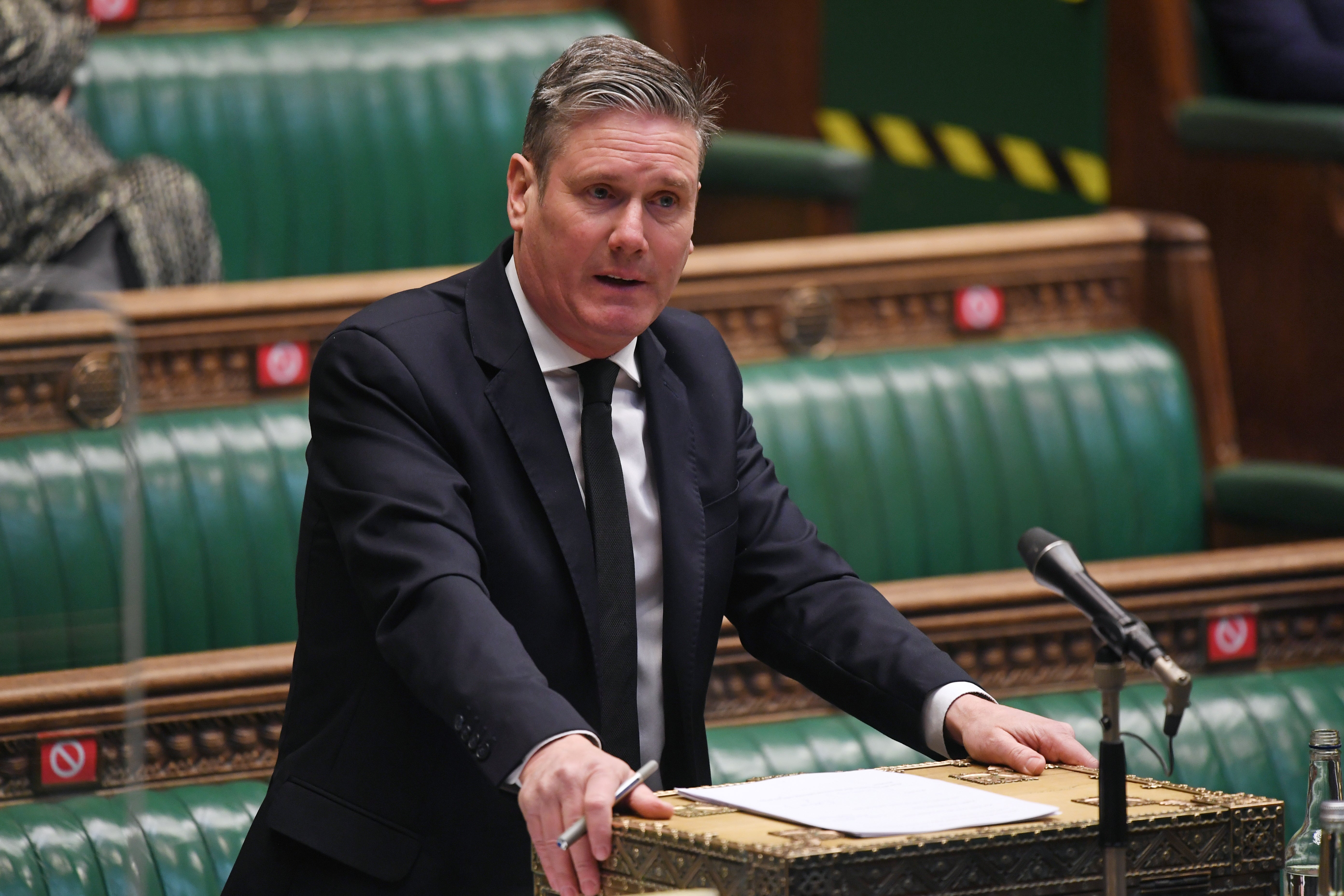Why Labour’s Commons defeat over Greensill wasn’t really a defeat at all
The Labour motion raised the profile of the issue and, while they never expected to win, the announcement of an inquiry that came shortly afterward will put a smile on Starmer’s face, writes Sean O’Grady


Labour’s latest attempt to embarrass the government about David Cameron’s lobbying activities, which even the former premier himself admits were ill-judged, used a parliamentary procedure known as an “opposition day” debate. This means that a motion is put to the House of Commons in terms entirely of the opposition’s choosing. Conventionally, the government of the day has an iron grip on the business of the house, but even so it permits some 20 opportunities during each parliamentary session when the opposition is allowed to dictate business. In this case the Labour Party opted to call for a parliamentary inquiry into Cameron, Greensill Capital and minsters such as Rishi Sunak and Matt Hancock, which was followed by a Labour-inspired debate on the size of armed forces. Both were chosen in part because Labour was aware that many Tory backbenchers have reservations about what has been happening on these fields, and that, therefore, they might at least get some lukewarm support or helpful interventions by Tory MPs asking their own minister the odd awkward question. (Of the 20, 17 days are allocated to the leader of the official opposition, and three days to the leader of the second largest opposition party, who shares the time with smaller parties in the House of Commons).
Governments, especially in this case, tend to signal their lofty contempt for proceedings by dispatching the most junior of ministers to answer the most senior members of the opposition front bench. Thus it was that obscure cabinet office minister Chloe Smith was sent in to answer Anneliese Dodds and Rachel Reeves. Smith it was who put in the most spectacularly bad broadcast performance in the entire decade of the 2010s, with the possible exception of Green Party leader Natalie Bennett’s “brain fog” of 2015. Smith was torn apart by Jeremy Paxman over a fuel duty U-turn in 2012, and it still makes for excellent viewing. Fortunately for her she is on better form these days.
It is rare, though, for governments of any party to lose on opposition day motions. This is because, in this case, Conservative members are very unlikely to side with Labour and a motion put down in the name of the leader of the opposition, even if they agree with it. It is, frankly, too much of a betrayal of their own party, and the whips will make sure there are career damaging consequences for anyone unwise enough to troop into the same lobby as Keir Starmer and his tribe, for it is indeed a tribal business. It is quite different to, say, an amendment to a bill out down by Conservative backbencher, where support is not regarded in quite the same way by their own side, though it still requires some bravery unless it is a truly massive rebellion.
Occasionally, though, a government will mess up so badly and the opposition will have moved so adeptly that either a motion is lost or ministers will cave in rather than risk even more humiliation. This was the case, for example, on a Labour motion supporting Marcus Rashford’s campaign to extend free school meals support during lockdown last summer. In effect the government was shamed into admitting it was out of step with public opinion, which is what, along with their various consciences, drives MPs to take a stand.
In the case of the Cameron-Greensill affair, Labour may have thought it was pushing at an open door in calling for a parliamentary inquiry, but it turned out that the door was so open that the party fell right through it. Some sort of parliamentary inquiry was probably going to be organised anyway, so Labour calling for one seemed a bit otiose. However, the Labour motion raised the profile of the issue, and may have had the effect of making a select committee inquiry more likely to be set up swiftly, more aggressive in its activities, or both. The Treasury Committee, led by Mel Stride, has already announced an inquiry, and the Public Administration and Constitutional Affairs Committee, chaired by William Wragg, may also pursue the matter. David Cameron and Alex Greensill will make for interesting witnesses, as will Rishi Sunak, curiously camera-shy at the moment.
Opposition day motions also help opposition frontbenchers showcase their forensic skills, and Reeves did so again in this exercise. As with so many of her recent interventions, though, it seemed her prey was less Sunak or Cameron as much as her colleague and right honourable friend Dodds, whose job as shadow chancellor she might well covet. As someone once observed, in the Commons the opposition is front of you, your enemies are right behind you. Maybe for Dodds and Reeves it was more an enemies day than an opposition day.


Join our commenting forum
Join thought-provoking conversations, follow other Independent readers and see their replies
Comments